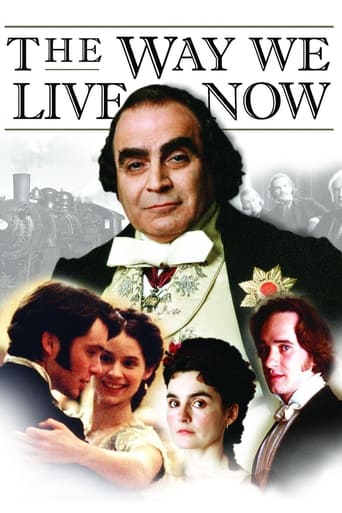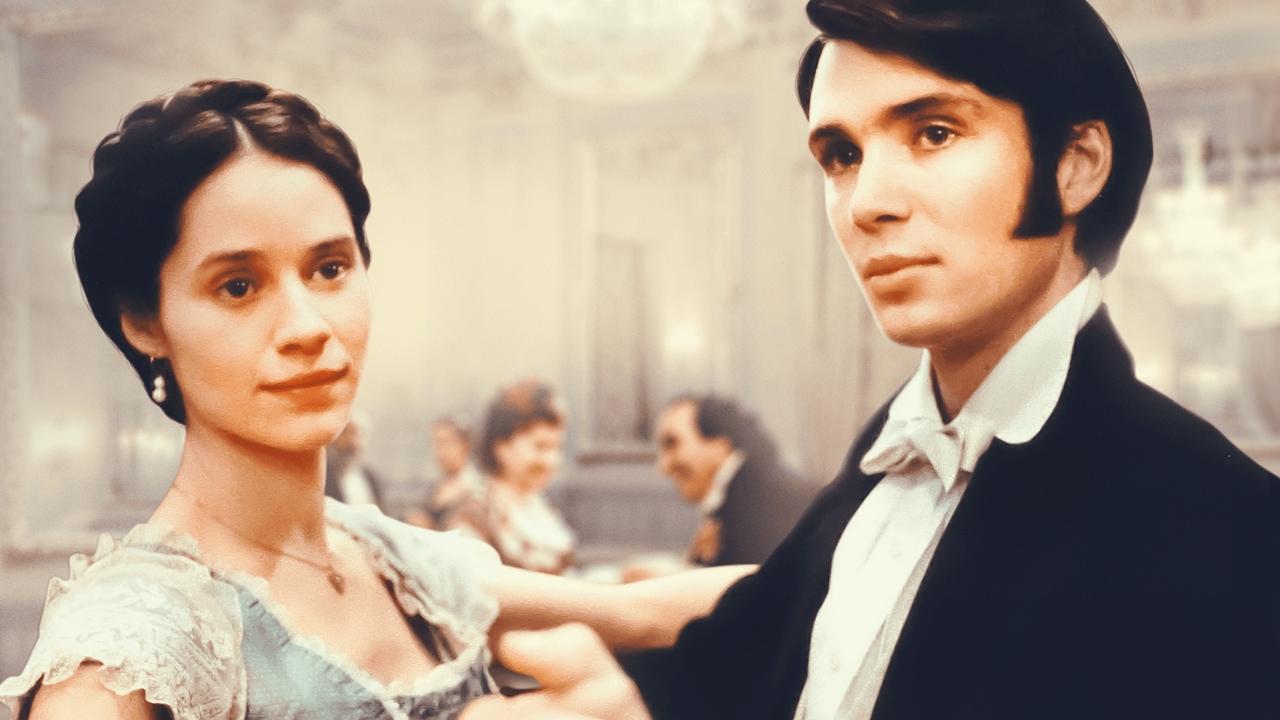claudecat
"The Way We Live Now", a BBC/WGBH co-production, is powerful, and features some fine acting and well-written scenes, as well as lush settings and costumes, but it's obvious even to those who haven't read Anthony Trollope's novel that the story has been "jacked up" for modern viewers. On its own terms, the mini-series mostly gripped my attention, but I wondered if sections had been cut from the American release, because some parts of the story seem to be missing. For example, two characters who like each other in Episode 3 have already become engaged and estranged at the beginning of Episode 4--the actual proposal having been skipped over. The decision to cut such important plot elements in favor of unnecessary but atmospheric scenes (such as a wander with some characters through the forest on a fruitless deer hunt) was strange to me, but some viewers may prefer it. The director heightens many scenes by adding unnaturally loud sound effects, which will strike some as artfully intense, and others as vulgar.As far as its faithfulness to the novel, director David Yates and screenwriter Andrew Davies appear to have followed a "simplify and exaggerate" policy, presumably to make the story and characters clearer and more likable to a modern audience. It was easy to guess that the young women in the miniseries are made feistier and more independent than they are in the 19th-century original, but I was surprised, upon reading the book, to find that Paul Montague (Cillian Murphy) is also much more diffident on the page than he is on screen. Some changes fit well into a modern worldview: the love of Roger Carbury for his cousin Hetta is, rightly by today's standards, characterized as patronizing and oppressive, though Trollope wouldn't see it that way. But strangely, the fascinating character of Mrs. Hurtle, who has some of the most interesting speeches in the book, is reduced to being a "Southern" temptress in Miranda Otto's odd performance (since Mrs. Hurtle is only connected with Kansas and San Francisco in the original, the choice to make her speak like Tallulah Bankhead playing Julia Sugarbaker is puzzling).Andrew Davies' screenplay has some fine moments, and certain scenes shine. However, he gives the story the same invented ending as he's given at least one other miniseries based on a 19th-century novel.All in all, recommended for fans of period drama--with qualifications.
Julie-30
The book The Way We Live Now is arguably Trollope's masterpiece. The book is a brilliant story of white-collar corruption that Davies turns into a recitation of Sir Felix Carbury's sexual conquests. Trollope's Sir Felix is worse than a cad; he is a scoundrel. But Davies glosses over the terrible things he does to his mother, to his sister and to the other women around him and makes him appear to be nothing more than a misunderstood young man. The end of the book is not ambiguous, but the end of the series is.One other thing I hated, and this most likely has nothing to do with Andrew Davies. Miranda Otto was awful as Mrs. Hurtle. I cannot imagine anyone believing she is an American.What a waste of time. I want those hours of my life back.
gelman@attglobal.net
If you watch Masterpiece Theatre with any frequency, you will long since have noticed that the BBC, which provides Masterpiece Theatre with its best material, seems to have access to an inexhaustible supply of superior actors -- mostly, though not all, British stage performers and mostly British trained. "The Way We Live Now" gives more proof of how deep BBC's acting bench is. David Suchet, the star of this series is familiar to American audiences for his portrayal of the fussy and fastidious Belgian detective, Hercule Poirot, created by Agatha Christie. The character he plays here could not possibly be more different than Poirot. He is a crude, unethical financier who seems large physically though Suchet is on the small side. Supporting Suchet is a sizable cast of actors, most of whom are complete unknowns to American audiences. They are all good and several of them are excellent. Where were Helen Mirren and Judi Dench before they became stars in Hollywood? Learning and applying their craft in Britain. Perhaps it is the acting schools and the repertory companies that turn these actors out in such profusion. Perhaps it is the quantity and quality of theaters and stage companies that give them opportunities unavailable in the U.S. Whatever the reason, the overall strength of the cast is what distinguishes this British TV series as it generally distinguishes British-made films from their American counterparts. American films may be superior in other respects but not for acting that merges effortlessly into the role.
michael-1012
Trollope's novel is filled with wonderful dialog and marvelously complex characters, but don't expect to encounter any of that here. It's all been thoroughly dumbed down, thanks to scriptwriter Andrew Davies who somehow got the idea he was capable of improving upon the original when he sat down to do the adaptation. There are so many places in this film which must leave a Trollope-lover gasping in disbelief, but I can mention one them without spoiling anything for those who haven't seen it. Davies' interpretation of the title phrase, "The Way We Live Now", which is twice forced into the mouths of characters in the film, though it appears not at all in the novel, does not refer to the corruption of nineteenth century English society, but simply means that relationships are difficult and things are complicated. Please.


 AD
AD






